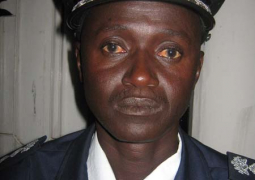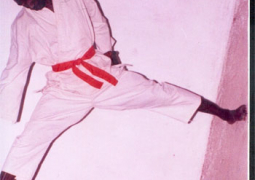Alkalo Buyeh Touray was testifying in his defence in the conspiracy and disobedience to lawful order case involving him and the Caliph General, Muhideen Hydara, before Magistrate Omar Cham of the Brikama Magistrates’ Court.
When the case was called, senior defence counsel AB Gaye said he wanted to call the 2nd accused, the village Alkalo, Buyeh Touray, to enter his defence.
The trial magistrate, Omar Cham, asked him why he wanted the 2nd accused to enter defence instead of the 1st accused, Muhideen Hydara.
Senior Counsel Gaye said, according to the evidence, the message was first relayed to the village Alkalo, who is the 2nd accused, Buyeh Touray.
Chief Inspector Camara for the prosecution said he had no objection to that.
In his testimony, the 2nd accused, Buyeh Touray, said “he is the Alkalo of the village and a farmer by profession,” adding that Darsilameh Sangajor is in Foni Kansala district.
He has been the Alkalo for 7 years, he said, adding that his father was the Alkalo and, when he died, he took over from him.
He said he knew the 1st accused, Muhideen Hydara, “who is also the owner of Darsilameh Village.”
Buyeh Touray added that he has one wife and one child, and he is 50 years old.
“You are charged with two counts, the first one is conspiracy to commit a misdemeanour and disobedience to lawful order,” counsel said.
The particulars of both counts were then read to him in court and translated to him in Mandinka, which he denied.
Continuing his testimony, he said he had seen the witnesses that testified in court and heard their testimonies, but disagrees with all that the witnesses said in court.
Giving his own version of the story, he said the badge messenger sent by the Chief, Seedy Gibba, told him the chief said the people of Darsilameh did not pray on Monday, but the government said no one should pray on Tuesday and the message should be related to the imam of the village.
He added that the messenger did not give them a day when they should pray, adding that the messenger said they should go to the imam and give him the message.
He then went with the badge messenger to the imam.
He further adduced that he told the imam what the messenger told him, and the messenger then told the imam that the chief said the Darsilameh people did not pray on Monday and the government said they should not also pray on Tuesday.
He said the imam’s name is Malaine Hydara, who died after the Ramadan.
He added that the 1st accused was not present when the message was related to the imam, adding that they went to the imam on Monday night.
He said the Caliph and the imam did not stay in the same compound.
He said the messenger relayed the message to him in Mandinka, adding that he personally performed the Eid ul Fitr on Tuesday.
The case continues on 3 March 2015.




